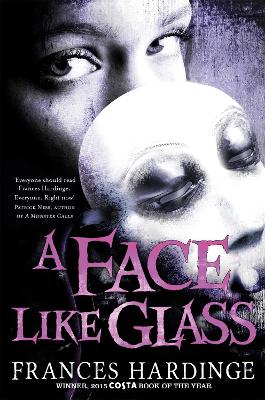Reviewed by Briana @ Pages Unbound on
Yet there is a plot here, and it is one of Court Intrigue. Readers who like Grave Mercy or The False Prince will be equally gripped. The courtiers’ plans may not be as convoluted or complex as it other books, but this is just a logical result of the world-building. In a society where using the wrong fork at a banquet can get one executed, plots do not always have to be complicated. Yet surprises are brought by the one outsider working against the Court in general, who has decided to use True Wine to erase and reinstate his memories, so that even he himself has no idea what his next move will be.
The pacing of all these plots is a little on the slow side. The bulk of the book is spent in setting up Caverna and all her quirks, so the schemes directly involving Neverfell and her mysterious past start moving late. It takes Neverfell, who is understandably yet occasionally annoyingly naïve, an equally long time to undergo some true character development and get some backbone and commonsense. Around page 350, she starts to realize that not everyone she meets in her life is her friend. She is a fantastic choice of protagonist for what Hardinge is trying to do in A Face Like Glass, but she is unlikely to make many “Book BFF” lists due to her unrelatability.
Interesting themes of the book include how to see the world as if it is constantly new instead of being blinded by familiarity, how to prevent/begin a revolution among the working class, and whether it is more worthwhile to see beauty or to own beauty. The questions are slipped lightly into the book and are not heavy-handed lessons. Think of Lauren Oliver’s books and how memorable quotes or ideas are scattered quietly throughout the pages.
A must-read for strong fans of fantasy. (Meaning if you love fantasy, you will love this book, but you have to be interested in magical world-building because the plot alone does not carry the book.)
This review was also posted at Pages Unbound Book Reviews.
Reading updates
- Started reading
- 6 August, 2012: Finished reading
- 6 August, 2012: Reviewed
